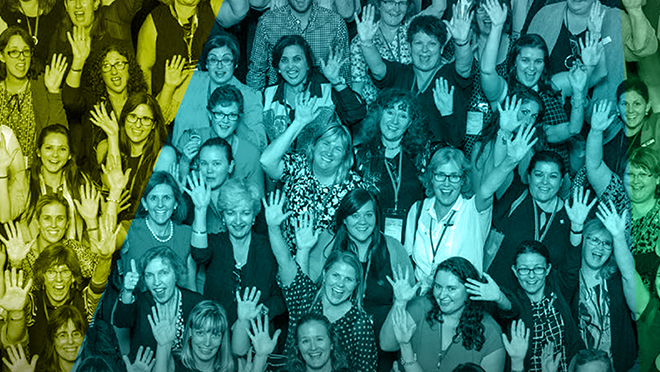HALT top teachers go there

The two-day Highly Accomplished and Lead Teacher (HALT) Summit organised by the Australian Institute for Teaching and School Leadership (AITSL) 24-25 May in Darwin showcased some of the nation’s most esteemed educators. This year’s theme was ‘expanding our impact’.
It is invitation-only and expert teachers who have voluntarily achieved certification against the Highly Accomplished or Lead career stages of the Australian Professional Standards for Teachers were present. Certification is a rigorous national process requiring applicants to demonstrate the impact of their practice on students and their colleagues.
As at December 2018, 573 teachers had been nationally certified as HALTs. A new Spotlight report to be released by AITSL at the summit has found that having a HALT in a school isn’t just beneficial to the individual teacher, it also contributes to an increased culture of learning among staff and enables quality teaching to have an impact across the school, and all learners.
AITSL CEO Mark Grant said: “Out of everything we do in schools to improve learning outcomes for students, we know it’s quality teaching that has the biggest impact. With some of Australia’s most accomplished teachers assembling for the HALT Summit, we’ll see some great examples of excellence being shared to benefit students across the country.
“At AITSL we want to see every Australian child with access to great teachers and teaching, and the fact almost 600 teachers have achieved HALT certification nationally means we are heading in the right direction,” said Grant.
“Having more teachers certified as HALTs isn’t just good for Australian students, but for the teaching profession as well. The more expert teachers we have, the more their colleagues have opportunities to learn, and the more teaching can grow in status as a profession.”
AITSL Chair Laureate Professor John Hattie said initiatives like the HALT Network and Summit were important to ensure teachers were recognised for their expertise, and had opportunities to continue developing as professionals.
“The HALT Summit is an excellent opportunity for expert teachers from around the country to collaborate, reflect on and recognise strategies and practice to expand their impact and boost student outcomes,” said Hattie.
“HALTs are expert teachers at the top of their game. It’s great news for them, their colleagues and of course their students.”
Year Eight Coordinator at St Clare’s College in Canberra, Kathy Kinnane, achieved certification as a Highly Accomplished teacher in 2012 during the ACT pilot of the initiative.
Kinnane, who will join dozens of expert teachers from around the country in Darwin described her experiences with both certification and the HALT Network as ‘a professional revelation’.
“Spending time with others who were challenging themselves to complete the program and continually reflecting on every aspect of our professional practice, while also having opportunities for cross-sectoral networking and friendships has been one of the most rewarding things I have ever done,” she said.
“This has only continued and developed through the support of our ACT Teacher Quality Institute and the growing national HALT Network.
“I have gained so many colleagues who have shared wonderful ideas and experiences through our local TQI HALT meetings and events as well as the broader AITSL national HALT Summit.
“My employer, Catholic Education Canberra Goulburn, has been tremendously supportive of my participation in the Darwin summit and I am very grateful for their help.”
Teachers travel from all across Australia to attend the annual HALT Summit, which is now in its fourth year.
This year participants will work with leading educational thinkers, including Dr Lynn Sharratt from the Ontario Institute for Studies in Education at the University of Toronto, and Professor John Hattie, to examine how they can effectively lead their colleagues and expand their impact.